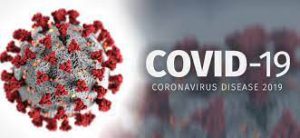When you think of mucus or snot, your mind might jump to colds, allergies, or even drooling babies. However, researchers are uncovering the remarkable roles mucus plays in our bodies—and how it could revolutionize medicine. From protecting our airways and intestines to potentially preventing viral infections, mucus is much more than a sticky nuisance.
The Unsung Hero of the Nose
Each day, our bodies produce about 10 liters of mucus. Of that, around 200 milliliters comes from the nose, often in the form of snot. Pär Stjärne, a researcher at the Karolinska Institutet, explains that nasal mucus serves multiple crucial functions, from filtering out harmful particles and bacteria to regulating airflow.
“The nose is a sophisticated system,” says Stjärne. “Its mucosa, paired with narrow anatomical structures, creates turbulence that traps particles before they can reach the lungs.”
However, misusing decongestant sprays can disrupt this balance. Prolonged use can lead to medication-induced nasal congestion, a condition requiring weeks of recovery without sprays.
Beyond a Cold: The Role of Snot
The color of mucus, often thought to indicate infection, is misleading. Early in a cold, clear mucus flushes out viruses. As the immune system responds, dead cells and bacteria can thicken and discolor the mucus, creating what Stjärne calls “an inflammatory soup.” Regular rinsing with saline solutions can help clear this buildup, particularly in those with chronic nasal issues.
Intestinal Mucus: A Barrier and a Gatekeeper
The mucus lining in our intestines is an equally impressive defender. Gastroenterologist Charlotte Hedin highlights its dual role: absorbing nutrients while keeping out harmful microbes. Yet modern diets may compromise this barrier.
“Emulsifiers and preservatives in ultra-processed foods can thin the mucus layer, potentially increasing the risk of inflammation,” says Hedin.
Her research into inflammatory bowel diseases like Crohn’s disease and ulcerative colitis aims to uncover why some patients respond to treatments while others don’t. She hopes to develop therapies that promote healing without suppressing the immune system.
Cow-Derived Mucus: A Biomedical Marvel
In a groundbreaking leap, researchers at Uppsala University, led by Hongji Yan, have created mucus-like gels using mucins from cow mucus. These gels have shown promise in preventing the transmission of viruses like HIV and herpes, with up to 80% efficacy in lab tests.
“These gels could be a game-changer,” says Yan. “Unlike antiviral drugs, they don’t risk contributing to antimicrobial resistance.”
The potential applications extend beyond infection prevention. Yan’s team is exploring mucus-based implants to reduce post-surgical inflammation and protect transplanted cells in diabetes treatments.
A Future Fueled by Mucus
Mucus, often overlooked or dismissed, is emerging as a cornerstone of medical innovation. From protecting our bodies to enabling advanced treatments, its potential seems boundless.
As Yan puts it, “Nature provides invaluable insights for biomaterial design. We’re at an exciting frontier, learning to harness and replicate mucus for groundbreaking medical applications.”
So the next time you reach for a tissue, remember: that sticky substance might just hold the key to a healthier future.












